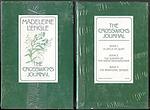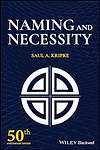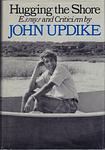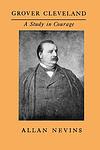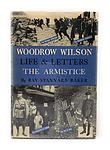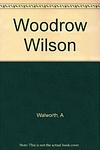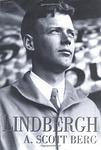The Greatest "Nonfiction, New Jersey" Books of All Time
Click to learn how this list is calculated.
This list represents a comprehensive and trusted collection of the greatest books. Developed through a specialized algorithm, it brings together 300 'best of' book lists to form a definitive guide to the world's most acclaimed books. For those interested in how these books are chosen, additional details can be found on the rankings page.
Genres
Countries
Date Range
Reading Statistics
Click the button below to see how many of these books you've read!
Download
If you're interested in downloading this list as a CSV file for use in a spreadsheet application, you can easily do so by clicking the button below. Please note that to ensure a manageable file size and faster download, the CSV will include details for only the first 500 books.
Download-
1. Notes of a Native Son by James Baldwin
This book is a collection of essays that vividly capture the author's life in Harlem, his travels in Europe, and his views on everything from the sweet music of black church revivals to the biting prejudice of the 'then' contemporary world. It's an exploration of racial, sexual, and class distinctions in both Western societies and the American society. The author's reflections on his experiences as a black man in white America are profoundly insightful and continue to resonate today.
-
2. The Summer Of The Great Grandmother by Madeleine L'Engle
The book is a poignant reflection on the complexities of aging and familial love, as the author recounts the summer when her mother faced the debilitating effects of old age and dementia. Set against the backdrop of a family's summer home, the narrative weaves together personal memories, family history, and philosophical musings on life and death. As the matriarch's health declines, the family grapples with the challenges of caregiving and the inevitable approach of loss, all while cherishing the moments of clarity and connection that shine through the shadows of her fading cognition. The work is a tender, introspective exploration of the bonds that hold families together through the trials of time and the cycle of life.
-
3. Naming And Necessity by Saul Kripke
This philosophical work challenges prevailing theories of naming and necessity within the analytic tradition. It argues against the descriptivist theory of names, which suggests that a name is merely a cluster of descriptions associated with an object. Instead, the author introduces the concept of rigid designators to explain how names refer to the same object in all possible worlds where that object exists, emphasizing that names are directly linked to their referents without the mediation of descriptive content. The book also explores the necessity of identity statements and the contingent nature of scientific identities, significantly influencing contemporary philosophy of language and metaphysics.
-
4. Patrimony by Philip Roth
The book is a poignant non-fiction account that delves into the complex relationship between a son and his aging father, who is grappling with a fatal brain tumor. As the father's health deteriorates, the son is confronted with the impending loss and the weight of familial duty, love, and the shared history that binds them. The narrative is a deeply personal exploration of identity, memory, and mortality, offering a raw and honest look at the challenges of caregiving and the process of saying goodbye to a loved one. Through this journey, the son gains a deeper understanding of his father's life and legacy, as well as his own place in the continuum of their family's story.
-
5. Growing Up by Russell Baker
"Growing Up" is a memoir that recounts the author's experiences growing up in America during the Great Depression and World War II. The author shares his journey from a poverty-stricken childhood in Virginia to becoming a successful journalist in New York. The narrative is filled with engaging anecdotes about his family, particularly his strong-willed mother, and the struggles they faced during these challenging times. The memoir is an exploration of the author's family history, personal growth, and the socio-political landscape of mid-20th century America.
-
6. Silent Dancing by Judith Ortiz Cofer
"Silent Dancing" is a poignant collection of autobiographical essays and poetry that weave together the memories of a Puerto Rican girl growing up in two worlds: the vibrant, warm island of her birth, and the cold, often unwelcoming urban landscape of New Jersey. Through a series of reflective and lyrical narratives, the author explores the complexities of her bicultural identity, dealing with themes of family, language, and the search for a sense of belonging. Her stories oscillate between the past and the present, capturing the nostalgia for a homeland left behind and the challenges of navigating a new American life, all while trying to hold onto her cultural heritage and personal history.
-
7. The Man Who Loved Only Numbers by Paul Hoffman
"The Man Who Loved Only Numbers" is a captivating biography that delves into the life of a brilliant mathematician. From his early years as a child prodigy to his groundbreaking contributions in number theory, the book explores the eccentricities and obsessions that consumed his life. With a unique blend of mathematical concepts and personal anecdotes, the biography paints a vivid portrait of a man who was truly devoted to the world of numbers.
-
8. The Pine Barrens by John McPhee
The book is a richly detailed portrait of the Pine Barrens, a vast and enigmatic region in New Jersey that, despite its proximity to major cities, has remained largely untouched and unknown. The narrative weaves together the area's natural history, the distinctive ecology of its sandy soils and pygmy forests, and the stories of its resilient inhabitants, who have adapted to the harsh environment and preserved their unique way of life. The author's exploration reveals the complex interplay between human culture and the natural world, as well as the ongoing threats to this fragile ecosystem from urban sprawl and development. Through evocative prose and meticulous reporting, the book captures the essence of a place that defies the expectations of the industrial landscape surrounding it, offering a contemplative look at a wilderness that survives against the odds.
-
9. Dynamite by Louis Adamic
"Dynamite" is a historical analysis that delves into the role of violence in American labor struggles from the post-Civil War era up to the early 20th century. The book meticulously documents various incidents, strikes, and conflicts between labor unions and industrial capitalists, highlighting how dynamite became a symbol and tool of resistance for disenfranchised workers. It explores the ethical and moral dimensions of using violence as a means of achieving labor rights, and critically examines the responses from corporations and the government. Through detailed narratives, the book provides insight into the complexities of labor movements and the extreme measures taken by both sides in the fight for workers' rights.
-
10. Washington's Crossing by David Hackett Fischer
This historical work delves into the pivotal event of George Washington crossing the Delaware River during the American Revolutionary War. It provides an in-depth analysis of the strategic decision-making, the hardships faced by the troops in the brutal winter, and the subsequent battles of Trenton and Princeton. The book also explores the impact of these events on the morale of the American forces and the ultimate outcome of the war, painting a vivid picture of this crucial period in American history.
-
11. Hugging The Shore by John Updike
"Hugging the Shore" is a collection of essays and criticism that offers an insightful exploration into various aspects of literature, art, and culture. The book compiles reviews, prefaces, and occasional pieces that delve into the works of numerous authors, poets, and artists, reflecting the author's broad literary tastes and deep understanding of the subjects. The essays are marked by their eloquence, sharp analysis, and the author's personal reflections, providing readers with a rich tapestry of intellectual engagement with the arts. Through this compilation, the author not only critiques but also celebrates the diversity and complexity of literary and artistic expression.
-
12. Shadow Divers by Robert Kurson
This non-fiction book chronicles the dangerous and suspenseful adventure of two deep-sea wreck divers who, in 1991, discovered a sunken German U-boat off the coast of New Jersey. Despite the risks and the skepticism of experts, the divers became obsessed with identifying the seemingly untraceable submarine. Their quest for answers led them to delve into historical records and put their lives on the line during numerous dives, ultimately revealing the U-boat's identity and bringing closure to a long-lost chapter of World War II history. The story is a testament to the power of curiosity, perseverance, and the human spirit's drive to solve the mysteries of the past.
-
13. A Sense of Where You Are by John McPhee
This book profiles the life and basketball career of Bill Bradley during his time at Princeton University. It details Bradley's discipline, intelligence, and unique skills on the court, while also delving into his personal life and his academic achievements. The narrative paints a vivid picture of a young man who excels both athletically and academically, while also giving readers a glimpse into the world of Ivy League basketball during the 1960s.
-
14. The Day We Found The Universe by Marcia Bartusiak
"The Day We Found the Universe" is an engaging exploration of the pivotal moments and key figures in astronomy that transformed it from a mere celestial survey activity to a dynamic science capable of measuring the universe. The book vividly recounts the story of how astronomers, through the use of larger telescopes and innovative thinking, began to unravel the vastness of the universe beyond the Milky Way, leading to the revolutionary discovery that the universe is expanding. This narrative brings to life the scientific quests and breakthroughs of individuals like Edwin Hubble who played crucial roles in changing our understanding of the cosmos.
-
15. A Beautiful Mind by Sylvia Nasar
This biography delves into the life of a brilliant mathematician who made groundbreaking contributions to game theory, only to later struggle with schizophrenia. The narrative traces his early academic successes, his work at MIT and Princeton, his ascent into the intellectual elite, and his subsequent descent into mental illness, which threatened to overshadow his achievements. Despite the challenges posed by his condition, he eventually won the Nobel Prize in Economics, illustrating a remarkable journey of genius, adversity, and resilience. The book also explores the impact of his mental health on his personal life, particularly his relationships and family.
-
16. Toms River: A Story of Science and Salvation by Dan Fagin
The book is a detailed account of a small town in New Jersey, Toms River, which became the epicenter of a major environmental disaster due to industrial pollution. It chronicles the community's struggle for justice, the scientific investigation into the high cancer rates, and the eventual legal battle against the chemical companies responsible. The narrative intertwines public health, legal drama, and investigative journalism, providing a cautionary tale about the consequences of environmental negligence.
-
17. Grover Cleveland by Allan Nevins
This biography provides an in-depth look at Grover Cleveland's life, his political career, and his two non-consecutive terms as President of the United States. The author delves into Cleveland's personal life, his rise in politics, his fiscal conservatism, and his commitment to reform and honesty. The book also examines the various challenges and controversies he faced during his presidency, including his opposition to high tariffs and imperialism, his support for the gold standard, and his struggle with the economic depression of the 1890s.
-
18. Woodrow Wilson, Life and Letters by Ray Stannard Baker
This book provides a detailed account of the life and letters of Woodrow Wilson, the 28th President of the United States. It explores Wilson's personal life, his political career, his ideologies, and his significant contributions to American history. The author uses Wilson's letters as a primary source, offering a unique insight into the former president's thoughts, feelings, and motivations. The narrative presents a comprehensive and intimate portrait of Wilson, from his early years to his time in the White House, and his post-presidential years.
-
19. Woodrow Wilson, American Prophet by Arthur Walworth
This book provides an in-depth exploration of the life and presidency of Woodrow Wilson, highlighting his religious upbringing and how it influenced his political philosophy and decisions. It details his early life, his time as a scholar and university president, and his tenure as the 28th President of the United States, focusing on his role in leading the country through World War I and his efforts to establish the League of Nations. The book also examines Wilson's progressive domestic policies and his vision for a new world order based on democracy and cooperation.
-
20. Lindbergh by A. Scott Berg
This biography provides a comprehensive look at the life of Charles Lindbergh, the famous aviator who made the first solo nonstop flight across the Atlantic Ocean in 1927. The book delves into his personal life, including his marriage to Anne Morrow Lindbergh, the tragic kidnapping and murder of their son, his controversial views on race and his involvement with the America First Committee, which opposed U.S. entry into World War II. It also explores his scientific contributions, such as his work in the field of aviation and his involvement in the development of the artificial heart.
Reading Statistics
Click the button below to see how many of these books you've read!
Download
If you're interested in downloading this list as a CSV file for use in a spreadsheet application, you can easily do so by clicking the button below. Please note that to ensure a manageable file size and faster download, the CSV will include details for only the first 500 books.
Download
